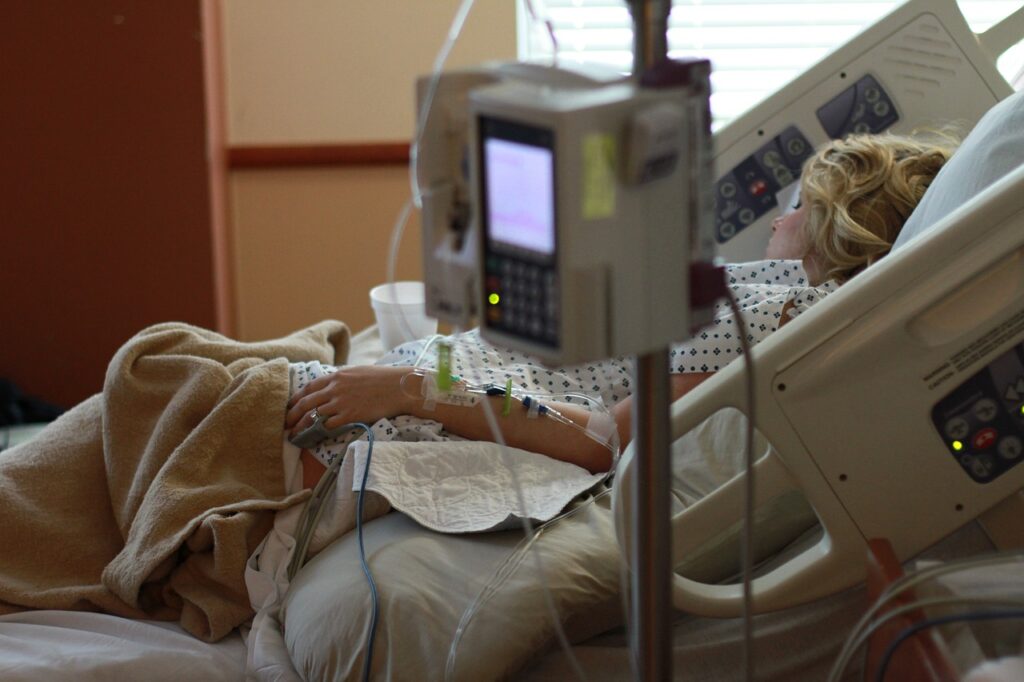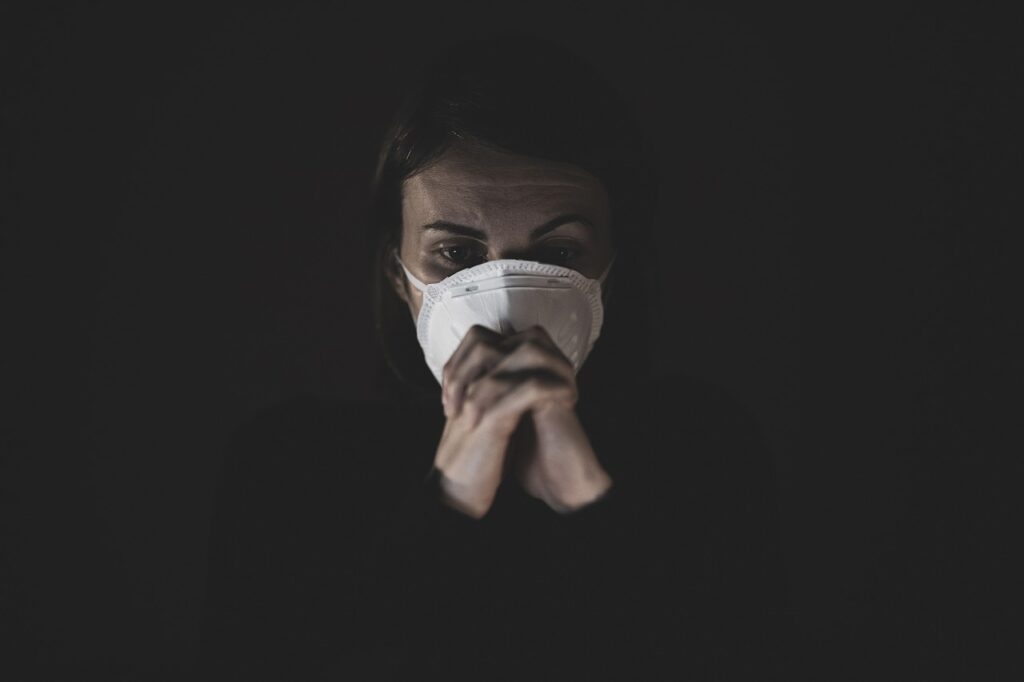As a healthcare worker, witnessing death is inevitable regardless of the department you work in. Experiencing death for the first time can leave you feeling empty and unable to articulate your emotions. Now imagine having the added responsibility of being a caregiver tasked with keeping that person alive. The emptiness you feel transforms into a pulse of distress, focused on your patient and their loved ones, constantly questioning yourself, “What more could I have done?” Grief does not solely shadow the widowed; it consumes all those in its path. Loss, guilt, remorse, shame, fear, anger, regret – these are all normal emotions for a healthcare worker to feel after losing one of their patients. It’s important to understand that there is no straightforward way to deal with our emotions. However, we must recognize, face, and allow ourselves to feel them, no matter how uncomfortable it may be. Ignoring our emotions can take a toll on our mental and emotional well-being and hinder our ability to move forward. It’s best to confront them head-on so that we don’t carry the weight of unresolved emotions with us.
“The first time I lost one of my patients, I was nothing less than horrified.”

It was Christmas Eve the day my patient died, and the emergency department was busy. There were several critical patients, so our three ER nurses were each occupied in different rooms, dealing with life-saving measures alone instead of as a team. The ER doctor had to rotate between rooms to try and keep everyone alive—no one was coding yet. There is a saying I often use when a physician is demanding one thing after another, “I’m only one person,” which is a reminder that things will get done by priority if team members are unavailable to help. There is a reason nurses get so close to one another the longer they work together. A team built through life-threatening challenges becomes a family you can trust through anything. I didn’t have my team that night due to patient overload, and backup wasn’t coming. I felt the pressure of only being one person to the extreme.
My patient was presumably septic – requiring vasopressors, antibiotics, and fluids. He was extremely sick, so there is a possibility that everything I did would not have made a difference anyway – sometimes, you exhaust all your efforts, and a patient still dies. It’s a reality you must learn to accept. In this instance, my patient went into cardiac arrest, my team was forced to come help with CPR – and I blamed myself for his death. Guilt has a voice that can scream so loud it blocks out all other reality. It makes you question your competence and if you’ve chosen the right career path – we have all experienced these realities, even if only for a moment – our mind plays tricks, telling us we can’t do this – we must remember that we can! We have what it takes! We will learn from mistakes, study harder, seek understanding, and become essential to the team. We will not give up when faced with death – we will get through this together.
Why do nurses grieve over the death of a patient?
It is not abnormal for nurses to become attached to their patients and their patient’s family members, especially in long-term care facilities and inpatient units. Connections can still be made when working closely with patients, even in a professional environment. On the opposite side of healthcare, surgical and emergency department nurses may have minimal interactions with their patients before their death. These sudden losses can be just as depressing without even having a conversation with the patient. Nurses feel a responsibility and commitment to keep people alive and well. When they are unable to sustain that goal, a sense of disappointment and failure brings added guilt to the death. Hospice care focuses on providing comfort and relief from symptoms during end-of-life, rather than treating the disease itself. Hospice nurses are fully aware that their patients are dying, but this awareness does not prevent them from the grief associated with death. The best thing you can do to minimize the negative impact of witnessing death in the workplace is to familiarize yourself with the atmosphere of death and dying, remember that you are only human, lean on the support of your coworkers, identify coping mechanisms that work for you, and forgive yourself for not being able to prevent the death.
Familiarize yourself with the atmosphere of death and dying
Death can be a distressing topic that elicits anxiety and hopelessness. It’s an uncomfortable conversation to have. The prospect of it happening during your shift can raise fear. These are all normal and valid emotions to have surrounding such an event. Remember, not all death is horrific – some death can be a blessing, a relief, and a peaceful transition for the dying individual. On the other hand, death can be completely unpredictable, traumatic, and sudden. These are the two scenarios you must familiarize yourself with.
Journaling opportunity
What do I fear about death? What do I fear surrounding the death of my patient? What part of those fears are within my control? What can I do to prepare myself for the day my patient dies? What have I done in the past after witnessing death? Have those coping mechanisms worked for me? What coping strategies can I implement to help me better process these emotions next time?
Immersive Meditation Exercise
This exercise may be triggering for some individuals. Please proceed with caution when reading the directions for this educational opportunity.
Take a moment to imagine a lifeless patient in front of you. They are lying supine on the bed, eyes closed, blankets covering everything but their face, and surrounded by mourning loved ones. Sit with this image momentarily. What do you feel? Does it hurt to see family crying over them? What could you do to comfort them? What part of this scenario gives you the most anxiety? Is it seeing a corpse for the first time? Is it hearing the sobs of grief? Is it not knowing what to say or do? Do you see yourself carrying that memory with you? How do you think you would cope with such a depressing memory? – Now imagine you’ve seen this scene 10 times – Do you think your perspective would change? Do you feel more confident in an appropriate response? Do you see yourself coping with the experience differently?
Familiarizing yourself with the atmosphere of death and dying is essential for controlling your emotions professionally, coping with personal grief, and diminishing the anxiety surrounding this topic. Initiating conversations about the nursing process after death and inquiring coworkers about their coping mechanisms can be a preparatory benefit when the time comes. Encountering death without any forethought can be detrimental to the psyche of a healthcare professional who is unprepared that this could be a very real outcome. Being uncomfortable talking about it, imagining it, and preparing yourself for it is less distressing than unexpectedly experiencing the rush of emotions that develop in the moment you witness someone die. Keep in mind that there is a possibility the reality of watching someone take their last breath may be nothing like what you’ve imagined. This does not make your preparation useless, for each death is different, and some experiences are unable to be imagined until you’ve lived them. This is part of being human.
Remember, you are human
It is human nature to feel grief after loss. Expressing the pain an experience has ignited in you is not weak. It takes a certain level of emotional awareness to allow yourself permission to feel. While reflecting on the situation, try to identify the many emotions that come into play. We cannot confront or overcome our feelings and perspectives on the outcome of death without first identifying the specific emotions that arise within us. Every individual will respond differently to death. The emotions you feel toward the death of your patient are valid and necessary for building inner strength. Nurses are compassionate, empathetic, and caring humans who often feel the pain of others deeper than most. We must remember that our need to help others should not outweigh the need to help ourselves. We cannot prevent all bad things from happening, and carrying blame will only cause worsening anxiety and poorer patient outcomes in the future. Give yourself permission to feel – you are allowed to grieve. You are human.
Lean on your coworkers
The power of community is paramount for creating a safe space of vulnerability toward workplace traumas with people who have been through similar experiences and understand the emotional battle you are facing. Find someone within your department, organization, or career with whom you feel comfortable openly expressing the turmoil of losing a patient. Although the hospital system should always offer debriefing after the death of any patient, the reality is the assumption that dealing with death is just part of the job. What circumstances warrant a debriefing for one nurse but not another? Realistically, we must look out for the nurses working alongside us. Regardless of the morality your organization provides you, you can choose to ask your coworker how they are handling the loss of their patient and share your own experiences so they may feel less alone. Community starts with a sense of belonging and leaning on each other to get through incredibly difficult times. We are all humans with emotions who must see and care for one another to the same extent that we care for our patients. We must all participate in providing that safe space for our fellow nurses and healthcare professionals.

Identify useful coping mechanisms
Everyone responds to grief differently based on past experiences and perspectives. There is no correct way to react and no definitive timeline for grieving. To find the right coping mechanism for you, it’s important first to understand the five stages of grief; these include denial, anger, bargaining, depression, and acceptance. These are not assumed to take place in a certain order, and you can fluctuate from one stage to another throughout the days, months, and years following a loss. It is essential to comprehend the five stages of grief, not only for yourself, but also for the dying patient and their loved ones. It’s important to find coping mechanism that work for you as an individual and not to judge how someone else chooses to grieve.
Coping mechanisms come in various forms that may include a trial-and-error period to narrow down what works best for you. Some healthy coping mechanisms after losing a patient include:

Forgive Yourself
Lastly, forgive yourself for not being able to prevent death. We are neither superhuman nor have the power to stop a soul from leaving this earth. It is not our job to play God or battle Mother Nature. Sometimes, people will die no matter how hard we try to prevent it, and that is not your fault. There will be moments when you make mistakes; you miss something, you give the wrong dose of a medication, or you don’t notify the provider of changes in a patient’s condition soon enough. There will be moments when you will doubt your ability to be a great nurse, how much you’ve really helped anyone, or if you’re mentally capable of witnessing the trauma that comes with working in healthcare. These feelings are not held by you alone. These emotions are normal and valid. Self-doubt is a trickery characteristic that we all hold inside us that will either stop you in your tracks or pressure you to find a way forward. We cannot move forward without compassion for ourselves and our coworkers. Forgive yourself – and remind yourself that you did everything you could’ve done with the information you had at the time. You are a strong individual capable of overcoming this challenge with the help of your healthcare community. The work you do has purpose and the care you provide is meaningful to so many people. Keep learning, growing, and supporting one another throughout your career.
Journaling opportunity
What is within your control? What can you research, learn, or discuss to help you in the future? Whose voice is telling you to quit? What other personal traumatic experiences are showing up as triggers in the workplace? Who is a safe space to talk about these experiences with?

